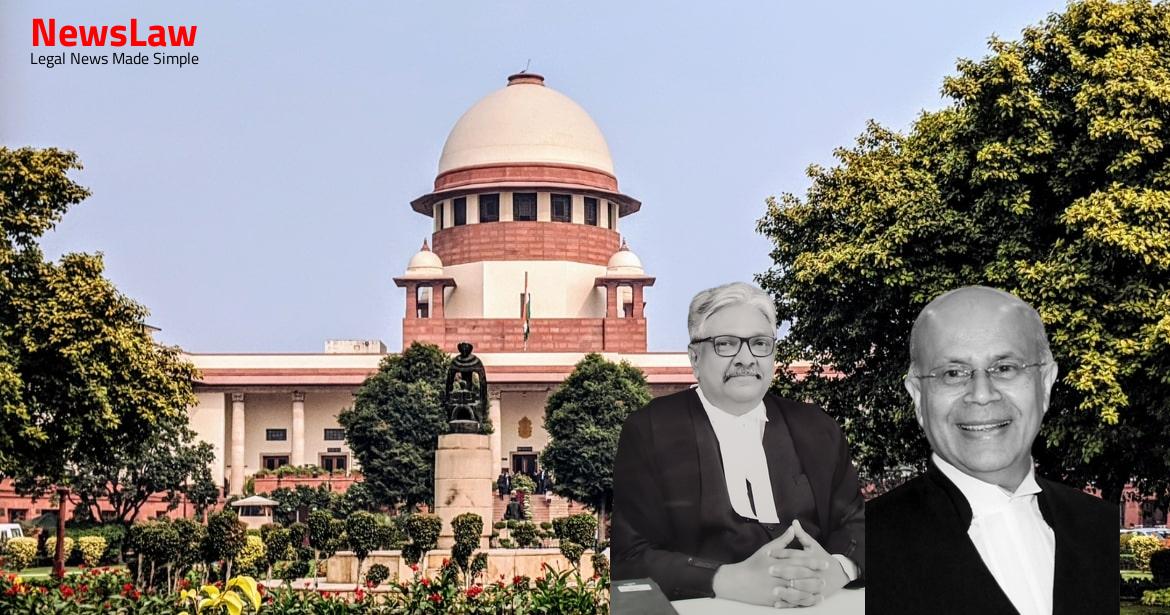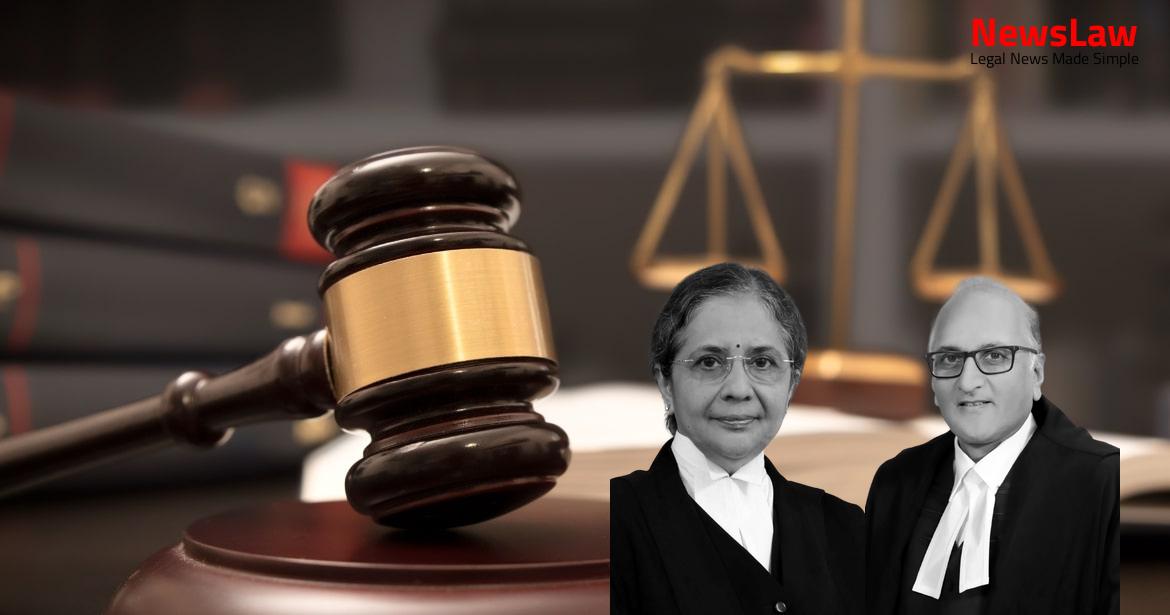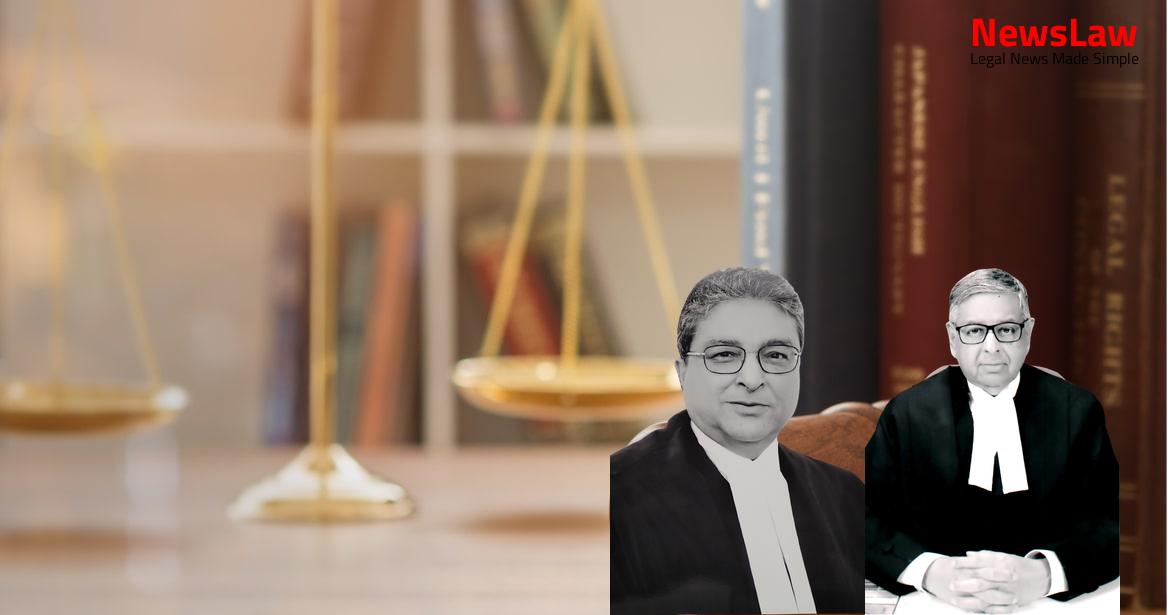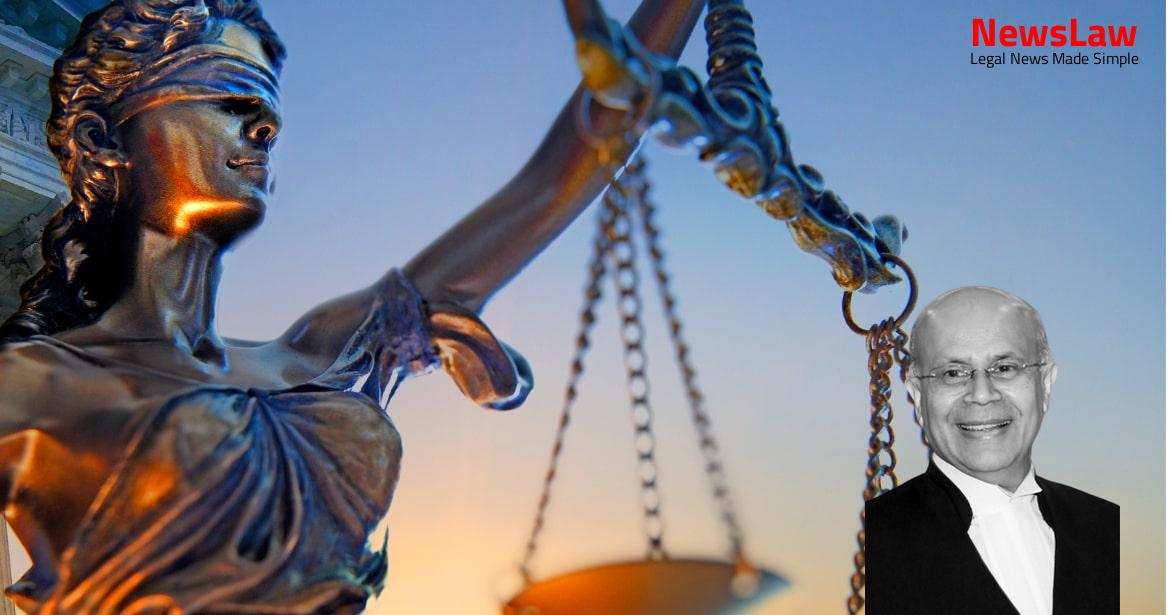Delve into the nuances of legal interpretation as the court navigates the realm of contractual analysis. This case summary sheds light on the importance of deference to tendering authorities, expertise in technical evaluation, and the limits of judicial intervention in contract matters. Discover how the court’s approach to contractual interpretation can impact public procurement processes and the overarching principles of fairness and transparency.
Facts
- JK Roadways filed a letters patent appeal before the Division Bench of the High Court seeking to quash the contract allotment in favor of the Appellant.
- The tender process included a technical bid and a financial bid.
- The first contention regarding the validity of the service license of the Appellant was addressed, noting that an extension had been sought prior to its expiry.
- The second contention dealt with the ownership of vehicles by the Appellant, where it was confirmed that 31 out of 36 vehicles listed belonged to the Appellant, meeting the eligibility criteria.
- The Tender Opening Committee found JK Roadways and Associated Contractors did not meet technical bid requirements, leaving Quareshi Transport Co. and the Appellant as eligible for the contract allotment based on technical criteria.
- The Division Bench set aside the judgment of the Single Judge and quashed the contract awarded in favor of the Appellant.
- The Appellant did not fulfill the essential condition of having a minimum of 5 years of work experience as required by Condition No. 27 of the N.I.T.
- The Division Bench found that the Appellant only had experience of supplying vehicles for 1 year, not meeting the 5-year requirement.
- The main arguments by the Appellant’s counsel focused on the rejection of their bid due to incomplete vehicle lists and awarding the contract to an allegedly ineligible bidder.
- The Division Bench noted that the tender notice allowed for either HMVs or LMVs to be listed, not both, making the rejection of the Appellant’s bid irrational and arbitrary.
- Following the Court’s order, the Appellant continued executing the awarded work with a few months left for contract completion.
- The official respondents were directed to invite fresh tenders and complete the process within a month.
- The Court issued an ad-interim stay on the High Court’s judgment and ordered a counter affidavit by Respondent No.1.
- The eligibility criteria of having 5 years of work experience not less than Rs. 2 crores was debated, with the tendering authority being considered the best judge of eligibility.
- The Division Bench found that JK Roadways, by satisfying Condition No. 31 of the N.I.T., was wrongly disqualified by the tendering authority.
Also Read: Limitation Period in Arbitration Disputes: Court’s Legal Analysis
Arguments
- The petitioner argued that they were found eligible and awarded the same work for the previous five years, which was completed satisfactorily.
- The eligibility conditions were not satisfied by the Appellant as per the Court’s interpretation.
- The Division Bench was wrong on both counts according to the senior advocate representing the Appellant.
- The petitioner did not possess a service license for the relevant period as it had expired without renewal.
- It is in public interest not to interfere with the allotment of the contract to respondent No 5, who met the technical bid criteria by providing a list of HMV & LMV vehicles.
- The Tender Opening Committee’s expertise in scrutinizing documents supplied by the Appellant should not be questioned by the High Court
- It is argued that JK Roadways was qualified based on a reading of Condition No 27 of the N.I.T.
- The additional standing counsel representing the Union Territory of Jammu & Kashmir supports granting the contract to the Appellant
- The Division Bench’s interpretation of Condition No 27 of the N.I.T. was deemed incorrect
Also Read: Interpretation of Royalty in Software Import Case
Analysis
- Technical evaluation or comparison by the court is impermissible
- The expert evaluation of a tender, particularly in technical aspects, should not be second-guessed by a writ court
- The authority that authors the tender document is best suited to interpret its requirements
- Judicial interpretation of contracts in commerce differs from interpreting statutes
- Exercise of judicial review is warranted only if the approach is arbitrary or mala fide
- Interpreting and appreciating tender documents calls for special skills and technical expertise
- The High Court ought to have deferred to the understanding of the tendering authority in interpreting the tender documents.
- The Division Bench should not have interfered by giving its own interpretation and ignoring the word ‘both’ in Condition No 31 of the N.I.T.
- Attempts by unsuccessful tenderers to exaggerate technical violations or prejudices should be resisted.
- Differences in contractual interpretation should not be grounds for the High Court to find illegality, especially when BCCL’s interpretation was plausible.
- Judicial intervention in contract matters involving state instrumentalities should be minimal, and the courts should give way to the expertise of the authorities floating the tender.
- Contractual terms should be interpreted based on the author’s understanding and appreciation of the requirements and documents.
- Judicial review is meant to prevent arbitrariness, irrationality, unreasonableness, bias, and mala fides.
- Interfering in tender or contractual matters should be carefully considered to avoid delays and increased project costs.
- Courts will only interfere if there is evidence of arbitrariness, irrationality, bias, mala fides, or perversity.
- The contention of the invalidity of the Appellant’s service license was not argued before the Division Bench and cannot be included in the appeal.
- The argument about submitting work experience certificates in the name of ‘Galaxy Agencies’ was not raised before the Single Judge or Division Bench and is rejected.
Also Read: Interpretation of Section 43B: Debentures vs. Interest Payment
Decision
- The Division Bench’s judgment dated 16.10.2020 has been set aside.
- The learned Single Judge’s judgment dated 30.06.2020 is restored.
Case Title: M/S GALAXY TRANSPORT AGENCIES,CONTRACTORS, TRADERS, TRANSPORTS AND SUPPLIERS Vs. M/S NEW J.K. ROADWAYS,FLEET OWNERS AND TRANSPORT CONTRACTORS (2020 INSC 712)
Case Number: C.A. No.-004107-004107 / 2020



